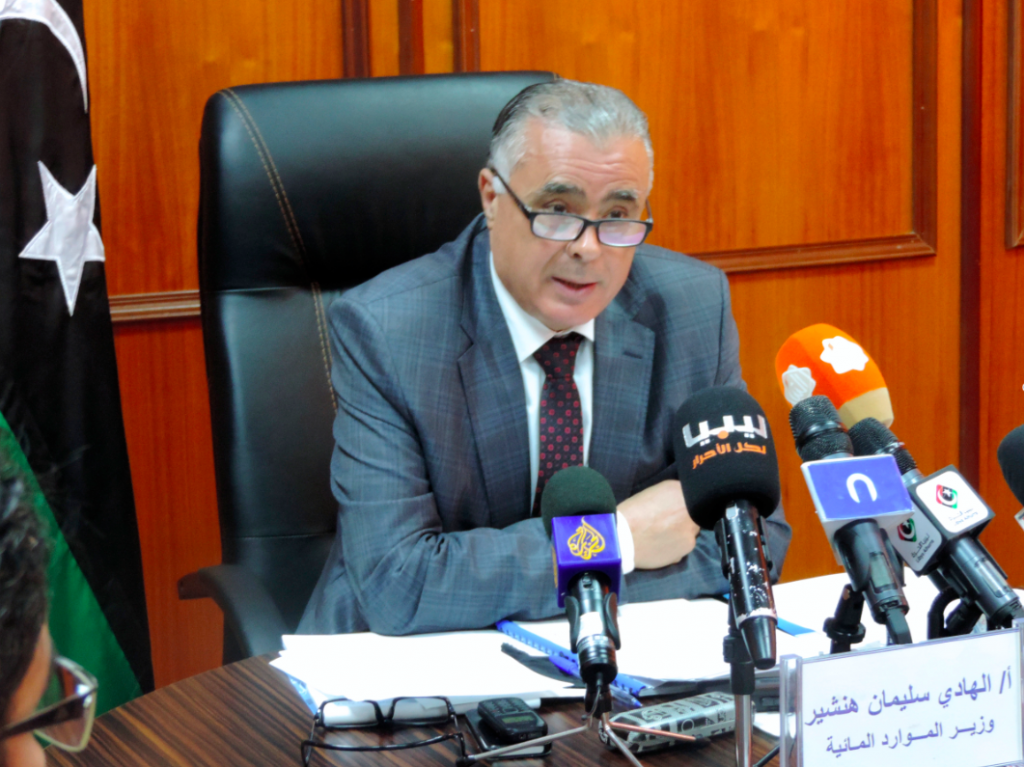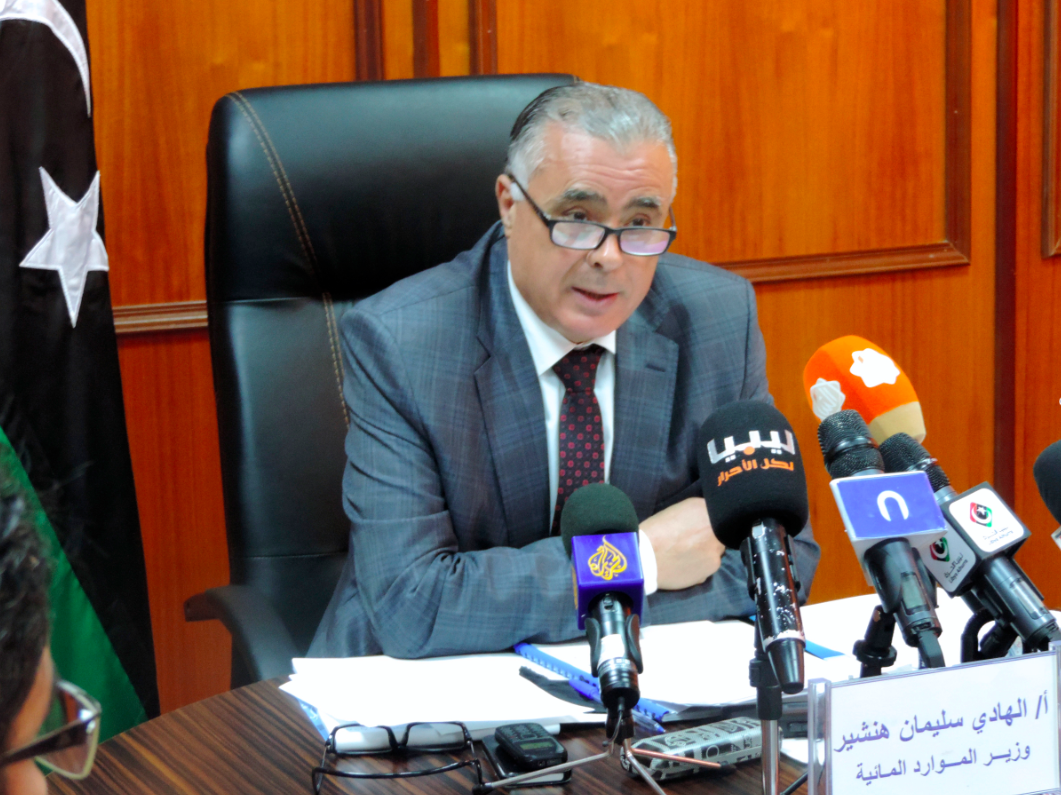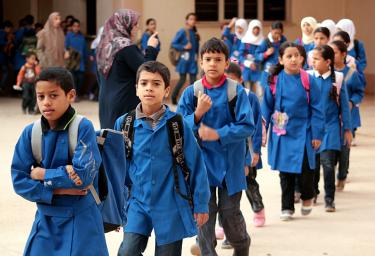By Seraj Essul and Tom Westcott.

Tripoli, 8 September 2013:
The Man-Made River pipeline has been reopened, six days after it was cut by tribal leaders reacting to the kidnapping of Anoud Senussi, but the capital will not have running water for at least another four days.
“Yesterday, at midnight, the operation team started running one of the pumps at the main pumping station,” Minister of Water Resources, Alhadi Suleiman Hinshir, said today at a press conference. He explained that the power transformer which supplied the pipes and pumping stations had been attacked, and teams had needed to evaluate the damage before they could return to work.
“Water is now flowing at a rate of about 200,000 cubic metres,” he said, “and water will reach Tripoli and the Nafusa Mountain area in four to five days.”
Hinshir explained that the Man-Made river pipeline from Jebel al-Hasauna normally pumped 1 million and 300,000 cubic metres a day. The process of re-pumping the full supply to Tripoli needed between four and six days, he said, because it had to be reintroduced to the pipeline gradually, expelling air that had filled the pipes over the last six days.
“Air has to be gradually expelled from the pipes to avoid a build-up of pressure which could cause an explosion,” Technical Manager for the Man-Made River, Mohammad Hejaji, told the Libya Herald. “It needs to have at least 1 million cubic metres to be able to remove the air from the system,” he said.
Hinshir said that the National Company for Water and Wastewater would distribute water throughout areas affected by cuts in tankers, to lower the effect of the crisis. It was not made clear where the tankers would be stationed or how people were expected to locate these.
Water was stopped on Tuesday 3 September, when a group of men from the Magarha tribe stormed the main pumping station at Jebel-Hasana and forced employees to stop working. They were demanding the release of Anoud Senussi, the daughter of Qaddafi-era intelligence head Abdullah Senuusi. She was kidnapped on Monday, immediately after her release from a Tripoli jail where she had served a ten-month term for entering the country on a forged passport.
Although Anoud was actually being held by the country’s Special Forces, who apparently intercepted the convoy she was travelling in a pre-emptive attempt to secure her safety, the tribesmen refused to restart pumping until she had been safely returned to the South.
Anoud was released last night and returned to family members at 10 pm. Within two hours, the operations team from the Man-Made River started running one of the pumps.
Homes across the capital began running low on water within 24 hours of the pumping station being stopped. Much of Tripoli has been without water since Friday.
“The supply of water and other resources is not a subject for political arguments or tribal conflicts and should not be used as a ransom by people to achieve certain ends,” Hinshir said, adding that resources were protected by international laws. [/restrict] [/restrict]










